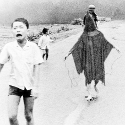|
Yeah, but Iraq wasn't about oil at all. I wish it was because we would have something to show for it. We should never have allowed foreign companies to bid on developing Iraqi fields, and rather let Iraqis nationalize them and sell it only to us.
|
|
|
|

|
| # ? Apr 25, 2024 03:16 |
|
Sivias posted:This is something I've been warning about since the start of this thread. Keep your eye on the Saudis. Part of me wants to see the US succumb to their dependence on oil and crash and burn, but of course that's a crazy notion since if the US falls they'd take the rest of the world's economy with them, and even if the US DOES need a serious kick in the rear end to get off of oil, millions of people would have their lives utterly destroyed before there'd be any hope of recovery. It's just one of those situations where doing the right thing ends up screwing you more because of all the wrong things done by your predecessors.
|
|
|
|
^^^ It will happen. The whole problem with our system of economics is it is based on infinite growth. We always talk about 'How much the economy has grown'. We never discuss maturity. However, the issue with infinite growth is it requires infinite resources, and unfortunately, oil is a very finite resource. I think I remember hearing that in 150 years, at the continued growth in oil usage, it will run out. And to the people who say "But Canada has oil shale" (Rocks you have to break open and process to squeeze the oil out) - but if it costs 1 barrel of oil to get one barrel of oil, it's not worth it. The reason the desert is such a nice source of oil is cause it's easy. Stick a straw in the ground and suck. Offshore drilling has the same exact concept but it's leaps and bounds more difficult, imagine trying to squeeze rocks. Frackmire posted:Yeah, but Iraq wasn't about oil at all. I wish it was because we would have something to show for it. We should never have allowed foreign companies to bid on developing Iraqi fields, and rather let Iraqis nationalize them and sell it only to us. I heard a woman on AJE once say "If Sadaam Husein had carrots instead of oil, we never would have invaded." And it's true. If the land didn't have the second largest sources of oil, we never would have went. Sivias fucked around with this message at 03:38 on Mar 1, 2011 |
|
|
|
Sivias posted:I heard a woman on AJE once say "If Sadaam Husein had carrots instead of oil, we never would have invaded." Well unless I missed something, if the USA went in there to secure oil for themselves they've done a pretty terrible job so far.
|
|
|
|
Sivias posted:The only difference is the country is by far more conservative than the surrounding nations and the government is more of a family. So rearranging money around to help the lower class citizens is far easier.
|
|
|
|
Well, it isn't just for America. What a lot of people don't really understand about oil is that every drop of oil that get's pumped out of the earth goes to the world market. (Which is why 'drill baby drill' for oil independence is a complete loving lie. gently caress you Palin.) Every drop of oil we would pump out of ANWR province in Alaska would go to the world market. It's very convenient if you're an oil man (Cheney and Halliburton, and Bush who couldn't even run his own oil company.) as well as war being a very profitable venture. (See: Eisenhower on the Industrial Military Complex)
|
|
|
|
Toplowtech posted:It's true but fact that their government is a family could also be their main weakness. King Abdullah is 86 years old and his health not that good anymore (herniated disc, i think?). I wonder what would happen if a succession crisis between Nayef, Salman or any other son of Abdul-Aziz started in the current political context. Also, in any absolute monarchy, there's the possibility that the next day could bring a Prince Gyanendra / Hamlet - style succession crisis.
|
|
|
|
There are serious and compelling reasons why Saudi Arabia is similar to other regimes we've seen overthrown, and yet I still can't see it happening. They are an incredibly militarized state, and I'm not even sure that's counting unofficial security forces. The religious authoritarianism is a direct support of the regime and you would really need to see it crack to even have a hope of making the whole rotten thing collapse. I haven't seen a crack yet. Maybe one could show up, but if it does I don't see any way it doesn't make Libya look like a day in the park. Maybe that's part of it though, the reasonable consequences in Saudi Arabia of any uprising strong enough to take out the Sauds make me flinch from seriously considering the prospect.
|
|
|
|
farraday posted:There are serious and compelling reasons why Saudi Arabia is similar to other regimes we've seen overthrown, and yet I still can't see it happening. That's the scary part, really. There is a LOT resting on that little (well, not THAT little) kingdom in the middle east, and the royal family is all too aware of how much power their wield over the rest of the world.
|
|
|
|
Frozen Horse posted:Also, in any absolute monarchy, there's the possibility that the next day could bring a Prince Gyanendra / Hamlet - style succession crisis. I believe the king set up some sort of committee to choose his sucessor if something were to happen to him, given that the crown prince is as old as he is. Of course, whether people actually abide by that decision once he's gone is another matter, but presuming they do (and they have every interst in not causing succession disputes, since it would basically be the goernment turning on itself), there would be a fiarly smooth transition of power.
|
|
|
|
Well, supposing the cracks do occur and the House of Saud is overthrown, what are these consequences that could occur? Obviously the calculus of power in the region would change; it seems like every time I hear of some regressive or anti-democratic movement in the ME, it can be traced back to the house of Saud.
|
|
|
|
TheBalor posted:Well, supposing the cracks do occur and the House of Saud is overthrown, what are these consequences that could occur? Obviously the calculus of power in the region would change; it seems like every time I hear of some regressive or anti-democratic movement in the ME, it can be traced back to the house of Saud. The issue is more what would happen to the world if the oil supply was interrupted, which it would be for the duration of any sort of revolution. Even if it was eventually restored, there would be serious economic problems from just a temporary shortage. Pretty much everything depends on the cost of oil; plastics are everywhere, transportation, electricity, etc. We don't have the infrastructure set up to just shrug it off. In the very long term, it would be a good thing for the world at large. But in the more immediate future it would probably plunge the entire world into a situation that makes the Great Depression look like a slight stock market dip.
|
|
|
|
TheBalor posted:Well, supposing the cracks do occur and the House of Saud is overthrown, what are these consequences that could occur? Obviously the calculus of power in the region would change; it seems like every time I hear of some regressive or anti-democratic movement in the ME, it can be traced back to the house of Saud. It would make Iran the regional power givent he two compete for influence in the Middel-East (seriously, they are fighting a proxy war in Yemen). Wikileaks even released a cable where the Saudis were urging the US to take out Iran.
|
|
|
|
Sivias posted:Well, it isn't just for America. Doesn't the vast majority of every resource on earth pretty much go to the world market? I want a solar powered flying car and that's never going to happen so long as there's oil in the ground. I'm in favor of drilling.
|
|
|
|
The other point about Saudi Arabia is that every regime we've seen crack (Tunisia, Egypt, and especially Libya), Old Regime figures have defected to the protestors or determinedly stayed neutral, impeding the ability of the regime to function and leveling the playing field. I'm not familiar enough with the Yemen revolt, but that emphatically did not happen in Bahrain, where the Sunni ruling elite banded together in fear of the Shia demonstrators. Saudi Arabia will be even worse. As has been repeatedly pointed out, the entire Saudi ruling class is one (tens of thousands strong) family. They have a level of connections and solidarity unfathomable to outsiders. While there are individual rivalries between the members (I'm no expert, but I've heard Crown Prince Sultan isn't widely liked by the younger royals, who resent that the elder generation has had a monopoly on the throne for decades), they will close ranks if challenged, out of fear of repercussions if the House of Saud falls if nothing else.
|
|
|
|
Speaking of which, does anyone know how much headway the protestors in Bahrain have made?
|
|
|
|
Good article on why KSA could be next. It's long, but she crushes a lot of myths, so I posted it in full.http://www.foreignpolicy.com/articles/2011/02/28/yes_it_could_happen_here posted:In the age of Arab revolutions, will Saudis dare to honor Facebook calls for anti-government demonstrations on March 11? Will they protest at one of Jeddah's main roundabouts? Or will they start in Qatif, the eastern region where a substantial Shiite majority has had more experience in real protest? Will Riyadh remain cocooned in its cloak of pomp and power, hidden from public gaze in its mighty sand castles?
|
|
|
|
It is time to go to war. MY GAS PRICES are above 3.50 a gallon. What is left to say, United States foreign policy is dismal and non-existant. Look just the other day a Saudi born "immigrant" was found to be a terrorist, yet they are allies. With friends like these.
|
|
|
|
SauceNinja posted:Doesn't the vast majority of every resource on earth pretty much go to the world market? I want a solar powered flying car and that's never going to happen so long as there's oil in the ground. I'm in favor of drilling. You clearly have very little understanding about the level of influence oil has on the structure of the human civilization. Land is tilled using vehicles that run on oil. Fertilizer made from oil is dispersed using vehicles that run on oil. Water is pumped on the crops using electricity generated from natural gas. The crops are farmed from vehicles that are made and run on oil. They're shipped to a processing plant that uses equipment that is made and maintained with oil. Wrapped in plastic that is made from oil. Shipped to a distribution center that then ships it to local grocery stores which use electricity to keep produce cool. You then burn fossil fuels again to drive and pick up your food. Solar, hydrogen, ethanol cars all require a vast amount of oil to produce. The level of human suffering that will occur when our oil runs out will be like that our species has never seen. Sivias fucked around with this message at 06:15 on Mar 1, 2011 |
|
|
|
Sivias posted:You clearly have very little understanding about the level of influence oil has on the structure of the human civilization. Well, not entirely true. Technically, it would just send us back to the dark ages, so humanity has suffered like that before. Though it would seem a lot worse going from the internet age to the dark ages than it would just being born in the dark ages.
|
|
|
|
The Cheshire Cat posted:Well, not entirely true. Technically, it would just send us back to the dark ages, so humanity has suffered like that before. Though it would seem a lot worse going from the internet age to the dark ages than it would just being born in the dark ages. Not even close. Here is a chart of the human population:  Notice how the dramatic population increase happens exactly when the industrial era occurs. The industrial revolution is impossible without oil. Before the industrial revolution, the energy we pulled out of the earth was directly related to the amount of sunlight the earth received. Crops grow, we harvest, etc. Oil is basically ancient sunlight energy. We've figured out how to utilize that energy (albeit very inefficiently). e: (When I said human suffering when the oil runs out, I of course mean the transitional phase. The human species will continue - no doubt. But our planet is unsustainable and the population will crash. It's no different than a petri dish of bacteria, or a herd of antelope. With population increase, the population must then decrease according to it's environment.) Sivias fucked around with this message at 06:28 on Mar 1, 2011 |
|
|
|
Hmm, you raise a good point; I forgot to account for the dramatic difference in population since then. So a lot of people would probably die, THEN we'd be in the dark ages. You know what kind of sucks? The fact that Nuclear power never really caught on because people didn't really understand how it works. It's a LOT cleaner than most of the popular forms of power we use now; obviously nuclear waste is EXTREMELY toxic, but miniscule amounts are produced compared to the pollution generated by burning coal/oil. It's not quite "renewable", since it does depend on a raw material, but it takes very little of said material to generate staggering amounts of power. Sadly this is one of those cases where it was the LEFT being reactionary idiots and acting against their own interests (because replacing coal and gas plants would have massively reduced pollution); take note, liberals! Using your brain is still a requirement even if you're on the progressive side of politics! So now the nuclear plants we have are the only ones we'll EVER have, unless the world finally gets over Three Mile Island and Chernobyl (both of which were caused because the safety procedures which ALREADY EXISTED at that point were not being followed. Also nobody actually died from Three Mile Island). Still. Maybe the unrest in the middle east will get the world thinking about its reliance on oil, even if it doesn't end up leading to a global economic meltdown.
|
|
|
|
The Cheshire Cat posted:You know what kind of sucks? The fact that Nuclear power never really caught on because... This, my friend, is called 'bargaining'. The middle east and Greece is currently going through 'Anger'. (Quit skipping steps!) In reality, it takes some 13 years of seeding, planning, getting licences, location (Nuclear energy comes from steam, remember. Which requires an absurd amount of water). Just a small list. And this doesn't even include the resources required to produce a nuclear power plant is enormous. You don't just throw a stone of uranium into a bucket. Then there is of course the question of increasing your sample size, the larger the chance of an accident happening. (0 days since last accident doesn't really help in a global catastrophe) You could go on and on in the resources and training required to construct and maintain nuclear power on a large scale. But nuclear power doesn't fuel cars, make tires, or lubricate machinery. (Of which is also required to run the turbines.) I wish Nuclear energy was the answer because that'd be an easy solution.
|
|
|
|
So should we suicide now or wait until the food riots? Peak oil related sarcasm aside it is certainly not going to be a fun transitional period even if you are a technological optimist.
|
|
|
|
|
Looks like within the past 24 hours Gaddafi has had three brigadiers and an air force pilot defect, and AFP is echoing rebel reports that he sacked his intelligence chief and replaced him with a bodyguard. If defections and staff shuffling continues at this rate then I can't see how the regime can last even another 10 days.
|
|
|
|
Sivias posted:The level of human suffering that will occur when our oil runs out will be like that our species has never seen. I think this is a little extreme. I agree with your analysis only with the assumption that oil would run out abruptly. If all the oil in the world disappeared tomorrow, I agree that it would be worse than the Dark Ages, mainly because there are immense numbers of humans to suffer terribly the intense chaos. However, there are many people, some with lots of money, trying to chart all of this. As we run low on that Easy Sippin' Light Sweet Crude (That the Saudis have, and who knows exactly how much THEY have left) and have to eat more Canadian Rock Oil and Under the Ocean's Couch Cushions Oil, the price will go up. I'm not going to guess a timetable, but I think all of the smart money is on "Oil will continue trending upwards in price in the Long Term". The natural extrapolation is that Energy as a whole financial sphere will trend upwards in price. The only possible exception I think would be if someone was able to economically synthesize petroleum. Basically I am saying that it will happen gradually rather than abruptly. And when oil hits $200/barrel, at whatever point in the future, alternative energy sources will have already been looking quite lucrative for some time. The impact of dwindling oil reserves depends on how many people realize this fact and at what time. Now, in the short-term, interruption of oil supplies would absolutely wreak havoc on the global economy according to the scale of the interruption. And there is no doubt that a significant interruption would be a terrible blow to an already weak economic situation and who can say what would happen if that situation gets bad enough... I hope that the results of the current situation in the Middle East leads to more democracy across the board. And maybe a disruption in the oil supply would be the exact kick the world needs to take energy alternatives more seriously. But I do hope we can avoid the suffering that would result from a true economic-meltdown-sized kick.
|
|
|
|
Sivias posted:This, my friend, is called 'bargaining'. The middle east and Greece is currently going through 'Anger'. (Quit skipping steps!) Well the point really is that the current oil crisis would have been lessened if some of the energy burden had been offloaded to nuclear power back when it was first developed, instead of suddenly halting production, not for economic reasons, but out of fear. I agree it wouldn't solve the problem, but with more electricity available and less reliance oil to produce it, things like the electric car might have proved to be more popular (or at least, the oil companies would have had powerful competition in the form of the nuclear power companies to fight against their suppression of the technology). Still not sustainable, but a lot closer than we were. From there it's on to solar power, then if I remember my Sim City correctly you get Microwave power, then Fusion power and it's just a matter of building Arcologies and blasting off into space. I suppose it's easy to say "Well that's how they SHOULD have done it" in retrospect. It's just kind of annoying to see that they already HAD something, and then just... stopped. The Cheshire Cat fucked around with this message at 07:01 on Mar 1, 2011 |
|
|
|
MothraAttack posted:Looks like within the past 24 hours Gaddafi has had three brigadiers and an air force pilot defect, and AFP is echoing rebel reports that he sacked his intelligence chief and replaced him with a bodyguard. If defections and staff shuffling continues at this rate then I can't see how the regime can last even another 10 days. The problem that I've seen is many of the brigadier defections are occurring in the east, where they were already nominally independent because of isolation. To turn that into real movement against the regime they need to push through Ghaddafi held areas in Central Libya to open supply lines to the warzones in the west.
|
|
|
|
Space resources and energy seem to be the best long term solution that allows for something resembling a commodious lifestyle. (Less lush than what we have, but with electric power, enough extraneous energy for industry and to run water cleaning stations, etc.) Even if we don't colonize.
|
|
|
|
|
Hmm, could we use alternative energy sources to provide for our fuel needs while using synthetic oil processes to fill industrial/chemical needs? I remember there was a lot of hubbub a few years ago about Thermal Depolymerization being able to take animal waste and convert it into oil. edit: Bleh TheBalor fucked around with this message at 07:24 on Mar 1, 2011 |
|
|
TheBalor posted:Hmm, could we use alternative energy sources to provide for our fuel needs while using synthetic oil processes to fill industrial/chemical needs? I remember there was a lot of hubbub a few years ago about Thermal Depolymerization being able to take animal waste and convert it into oi.
|
|
|
|
|
I recall hearing about the Canadians building a CANDU reactor in Alberta to offset the energy costs from cracking oil sands. Essentially, instead of using the 10 barrels of oil to recover 1 bbl, they'll use electricity generated by the reactor to do it. Of course, we probably won't see the prospective plant finished until 2017.
|
|
|
|
Roark posted:^^^ Since there's been defections of troops reported, surely there's someone who knows how to operate an old Soviet tank? Presumably so, although you'd a full crew to use it effectively. T-54 has no autoloader, it takes practise to know how to drive, and the commander is the only one who can see a bit of the surroundings. But probably the biggest issue would be logistical support. Those old Russian tanks are not very reliable anyway, and Libyan military has been in a state of decay. I don't think you'd be able to drive from Benghazi to Tripoli with that... or even around the block. Nessus posted:Unfortunately, skinhead music isn't an acceptable replacement for gasoline. I like the definition, though. "Oi is a byproduct of animal waste."
|
|
|
|
Nessus posted:Unfortunately, skinhead music isn't an acceptable replacement for gasoline. Fixed my post. I'm still interested in an answer to the question, though. If we can switch away from fossil fuels on our power-generation needs, might we be able to use synthetic oil and remaining reserves to stretch out our supply for a good deal longer? Or is the lion's share of oil used in these industrial applications?
|
|
|
|
Young Freud posted:I recall hearing about the Canadians building a CANDU reactor in Alberta to offset the energy costs from cracking oil sands. Essentially, instead of using the 10 barrels of oil to recover 1 bbl, they'll use electricity generated by the reactor to do it. Where did you hear all of this because none of what you wrote at all is correct.
|
|
|
|
Got my daily fix of Ivory Coast news:quote:Côte d'Ivoire: Ban Calls for Compliance With Arms Embargo http://allafrica.com/stories/201103010063.html Belaruuuuussss!!! Do not shoot at and/or kidnap the UN workers, Gbagbo  quote:Gbagbo forces fire at UN experts in ICoast http://news.smh.com.au/breaking-news-world/gbagbo-forces-fire-at-un-experts-in-icoast-20110301-1bc2m.html And things are moving right along in Oman: quote:MANAMA, Bahrain — Anti-government protesters blockaded Bahrain's parliament and crowded outside the state-owned television station on Monday in the latest effort to force the monarchy to step down. http://www.usatoday.com/news/world/2011-02-28-oman-protests_N.htm?utm_source=twitterfeed&utm_medium=twitter Holy poo poo, this is bad-rear end: quote:
http://www.washingtonpost.com/wp-dyn/content/article/2011/02/28/AR2011022805298.html?hpid=topnews&utm_source=twitterfeed&utm_medium=twitter I want to see that video; I haven't been able to find it. Mehdi Mohammed Zeyo, I salute you. Think your job sucks? Imagine how much more it would suck if they didn't even pay you: (translated from French by Google Chrome) quote:Walking and teachers strike for Wednesday, March 2 at Tizi Ouzou This story is from Algeria btw http://www.siwel.info/Marche-et-greve-des-enseignants-pour-le-mercredi-2-mars-a-Tizi-Ouzou_a668.html <---and this will be in French if you don't have Google Chrome Doesn't seem to matter whether you're a public school teacher or a religious school teacher or a priest in Algeria, either, your poo poo is not gettin' paid: (Also translated from French) quote:Imams call for increased wages http://www.algerie360.com/algerie/des-imams-reclament-une-augmentation-des-salaires/ <---also in French I found this entire article on China fascinating, and if you don't like it, don't read it then: quote:Well-Oiled Security Apparatus in China Stifles Calls for Change http://www.nytimes.com/2011/03/01/world/asia/01china.html?pagewanted=1&utm_medium=twitter&_r=1&utm_source=twitterfeed This calls for many, many, many false flag and disinformation campaigns to keep the authorities running to and fro, chasing phony stories of "social instability", until the whole weiwen system collapses. If I was in charge of the anti-weiwen program, I'd alternate stories of monks planning to set themselves afire in protest with student uprising stories and proposed Falun-gong public gassings to keep the Chinese secret police on their toes. I'm sure I could come up with some more misinformation campaigns if I really thought about it for a while.
|
|
|
|
Mr.Showtime posted:Where did you hear all of this because none of what you wrote at all is correct. I think it all comes from Gary Lunn, who has a serious hardon for all things ATOMZ.
|
|
|
|
It would be a seriously sweet, ecstatic thing if this thing spread also to Belarus. But maybe not yet, it's a lovely weather to protest in. We don't want Belarusian toes to get cold! 
|
|
|
|
Mr.Showtime posted:Where did you hear all of this because none of what you wrote at all is correct. I've heard it being thrown around for awhile, but doing a search for "oil sands canada CANDU", I got: a 1999 publication from the Canadian Nuclear Society regarding a "pollution-free" alternative to tapping the oil sands by using nuclear reactors; 2003 report from the Canadian Energy Research Institute regarding the feasibility and cost-effectiveness of using steam generated from the ACR-700 CANDU reactor; and a 2009 report from Atomic Energy of Canada Limited dealing with prospective reactor types such as ACR-1000 and SuperCANDU in cracking oil sands. The proposed reactor in Alberta comes from a CBC article on the Energy Alberta Corporation filing an application in 2007 to construct a reactor 30km from Peace River. It would likely go live in 2017. The 10 barrels per 1 barrel of oil came from a poster in this thread.
|
|
|
|

|
| # ? Apr 25, 2024 03:16 |
|
In grammar school I got Belarus as my country of interest to do a social studies project on. Needless to say I was among the most boring of all the subjects... so if Belarus does protest, it will more than likely be one of the most uneventful we've seen yet
|
|
|





















